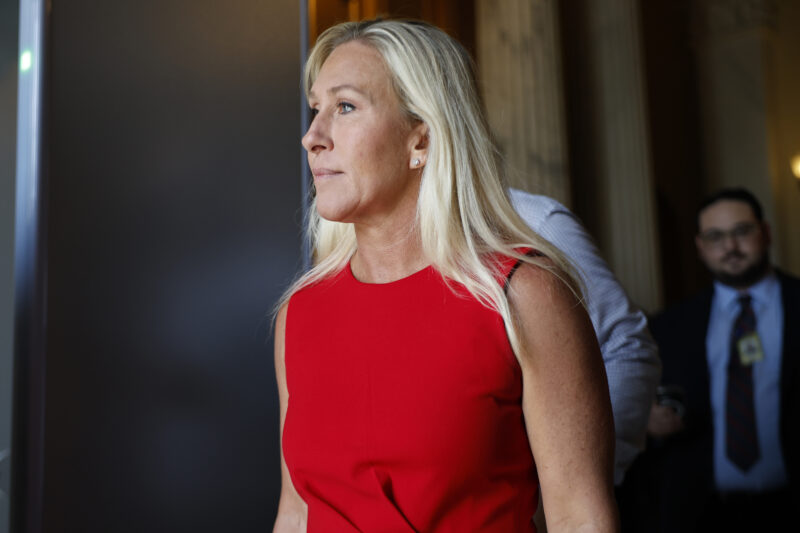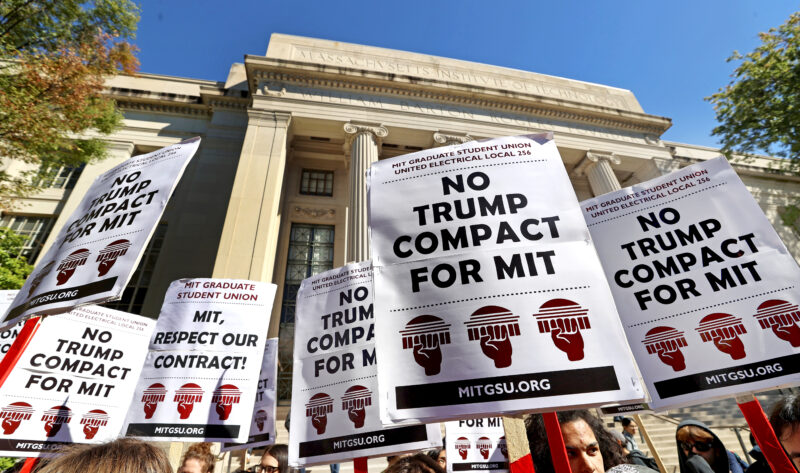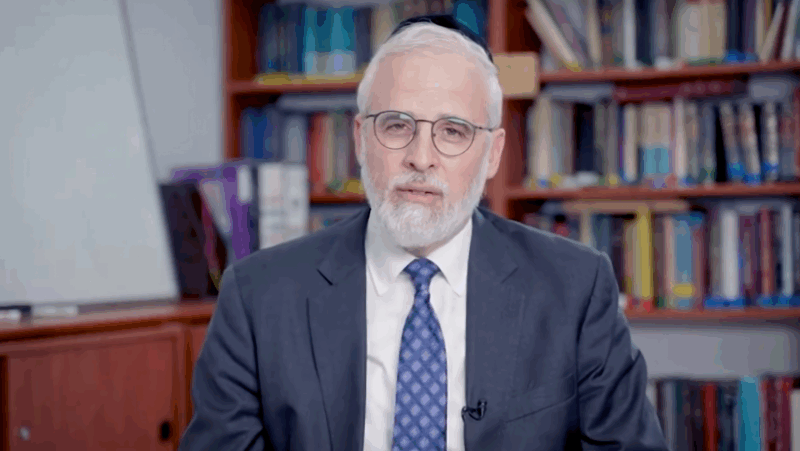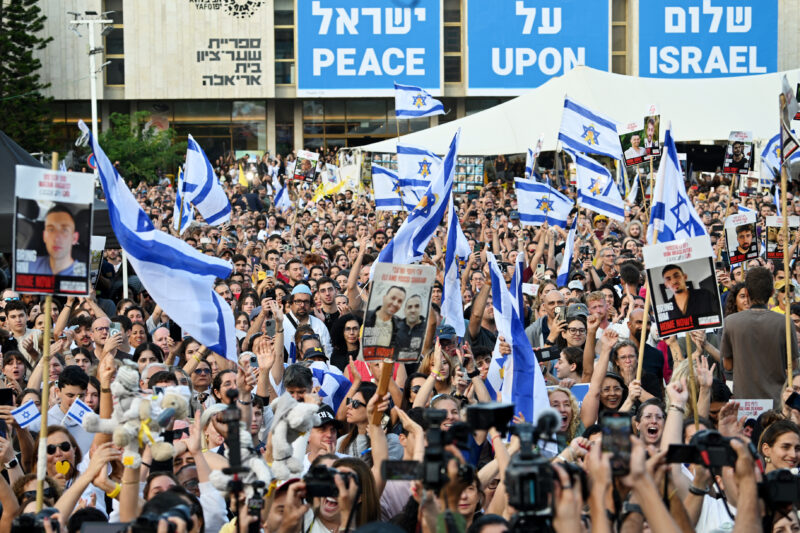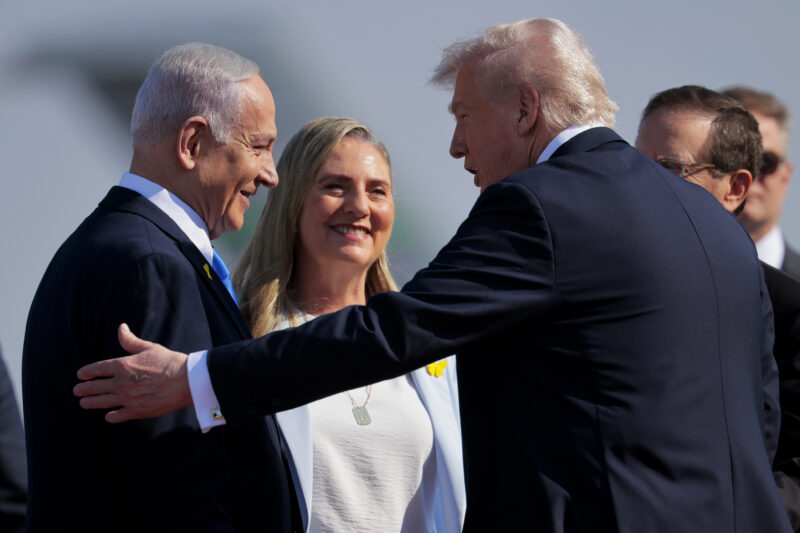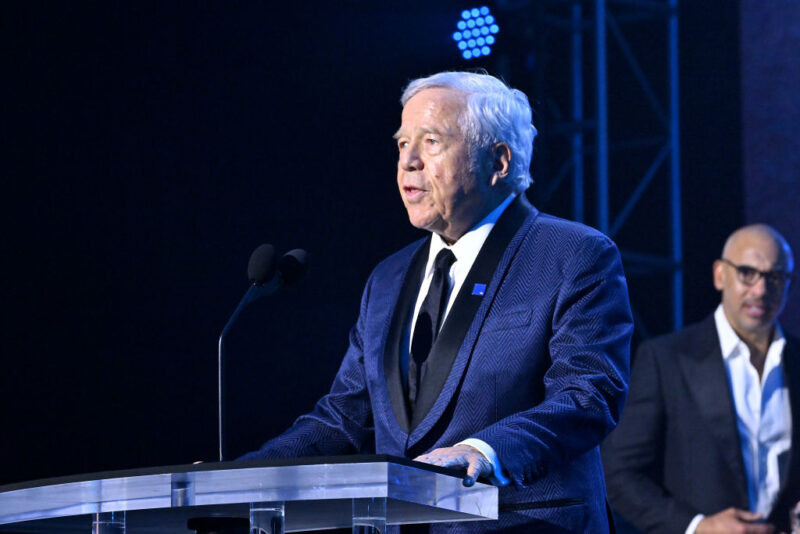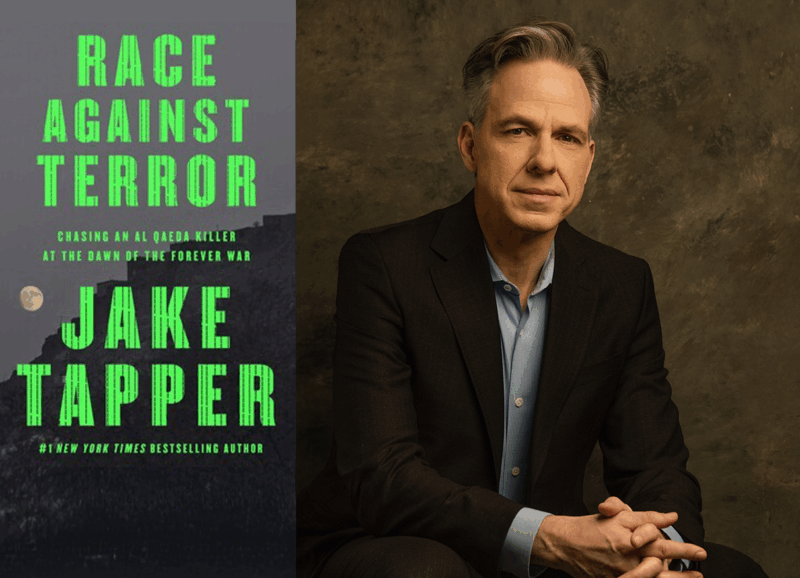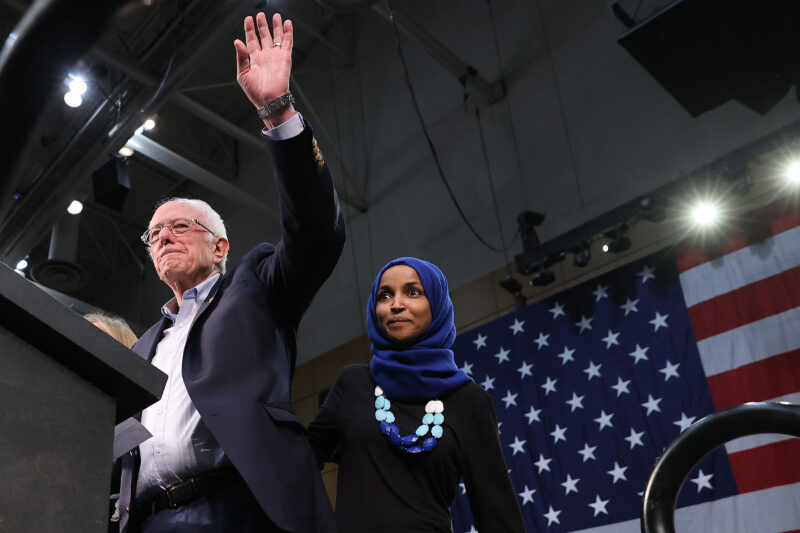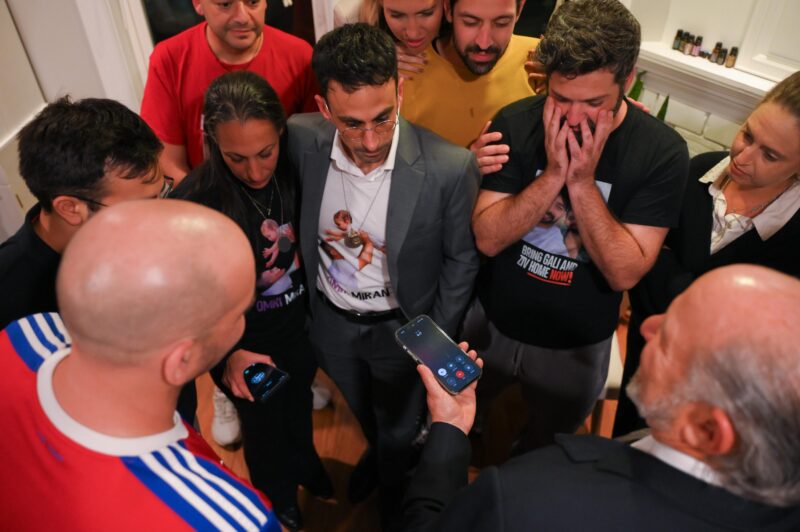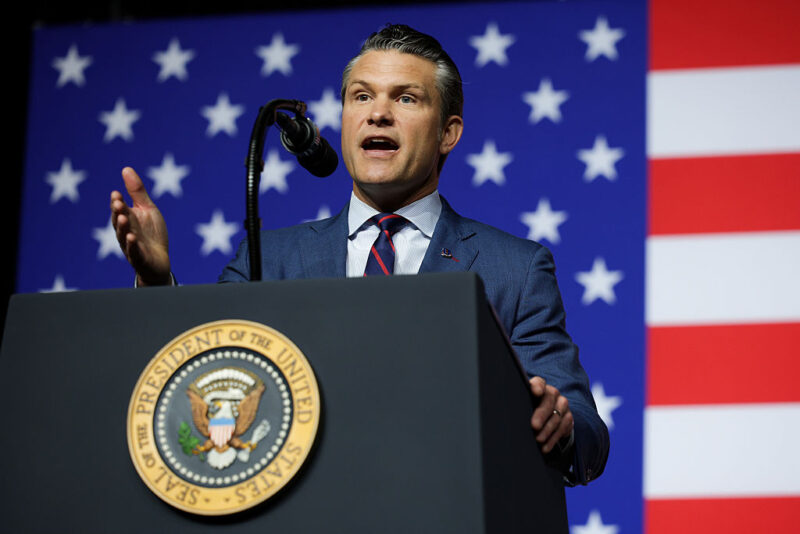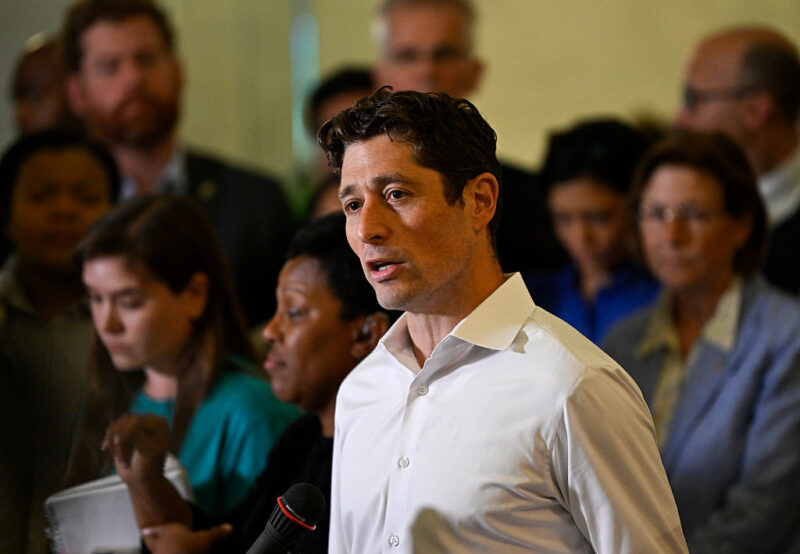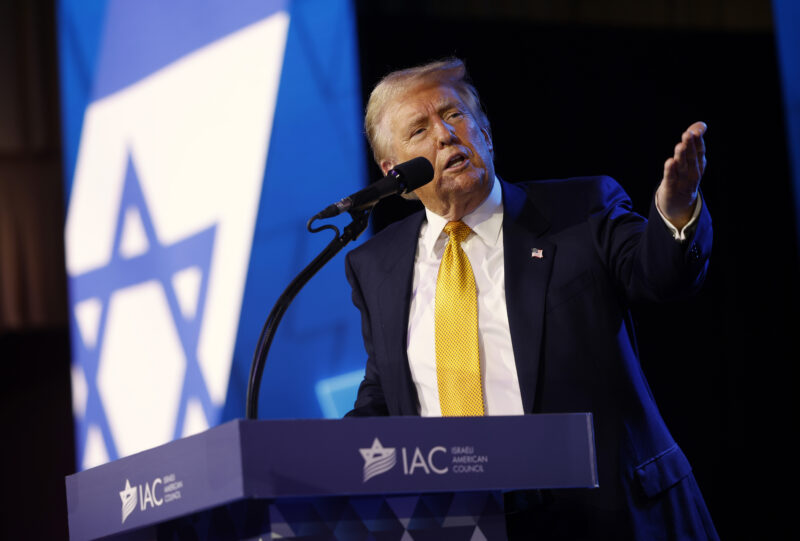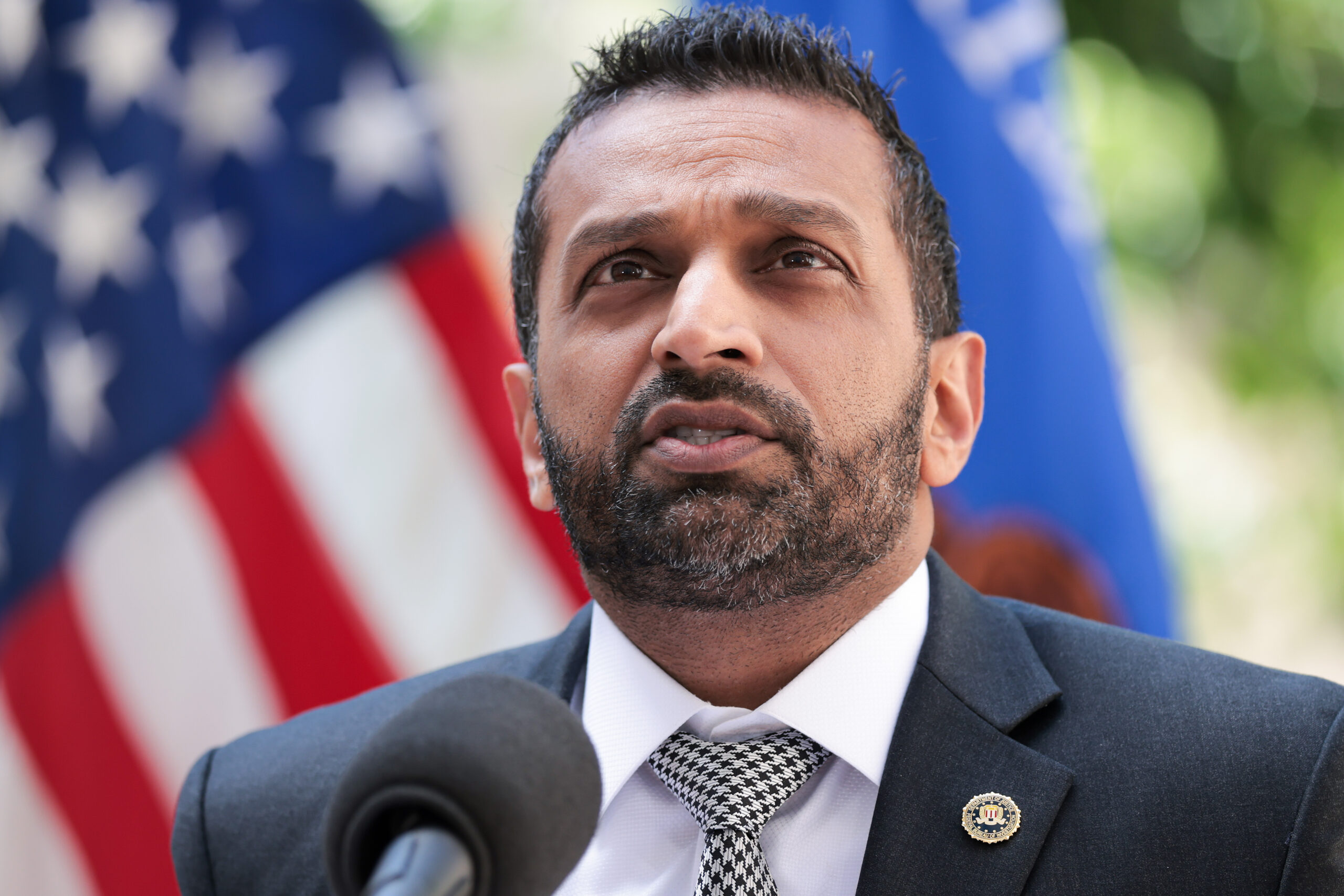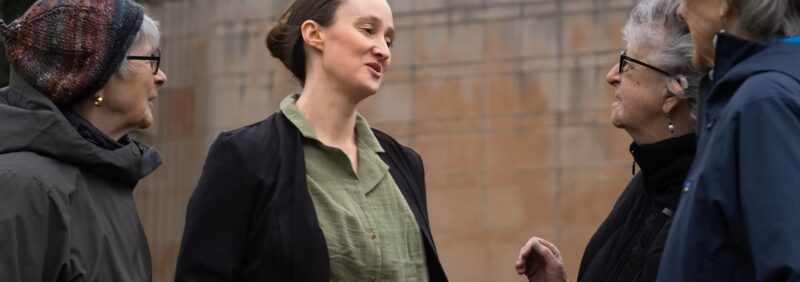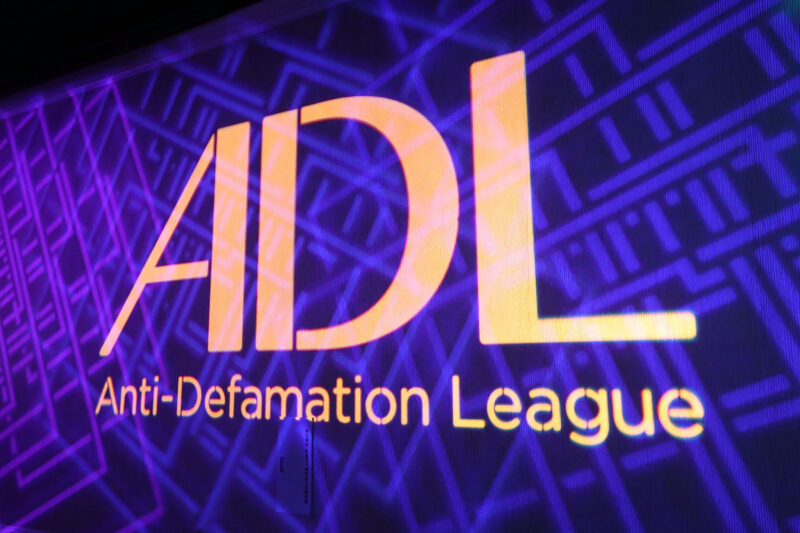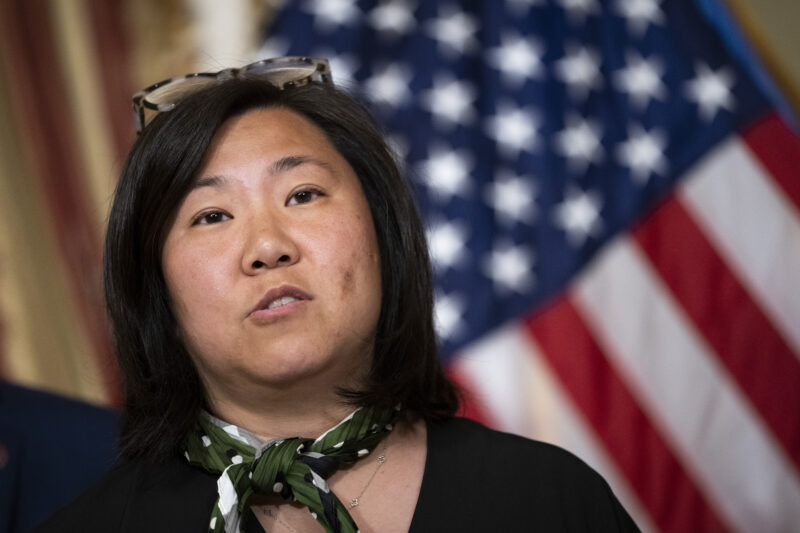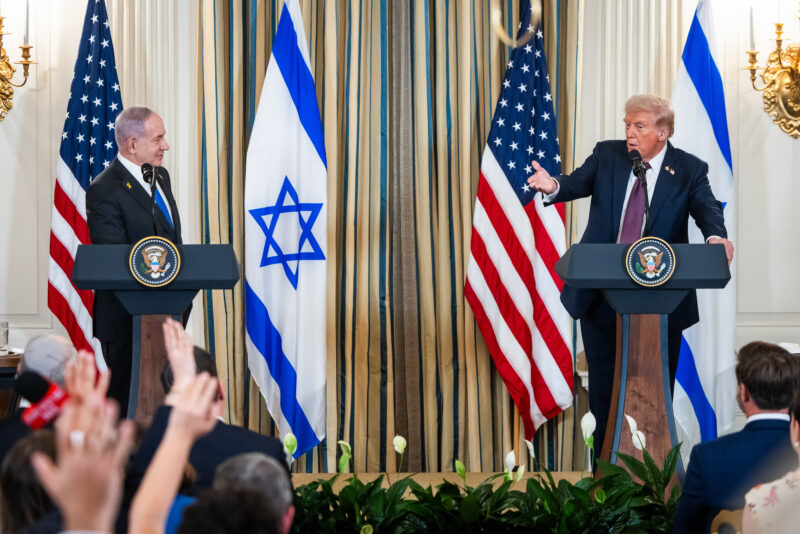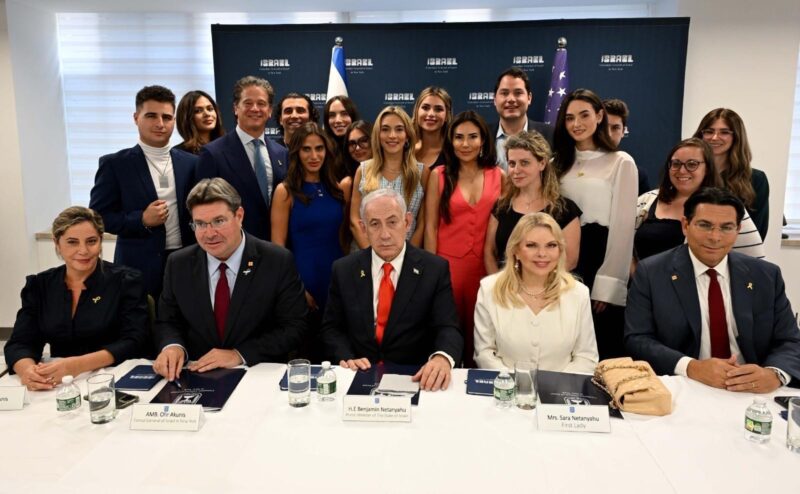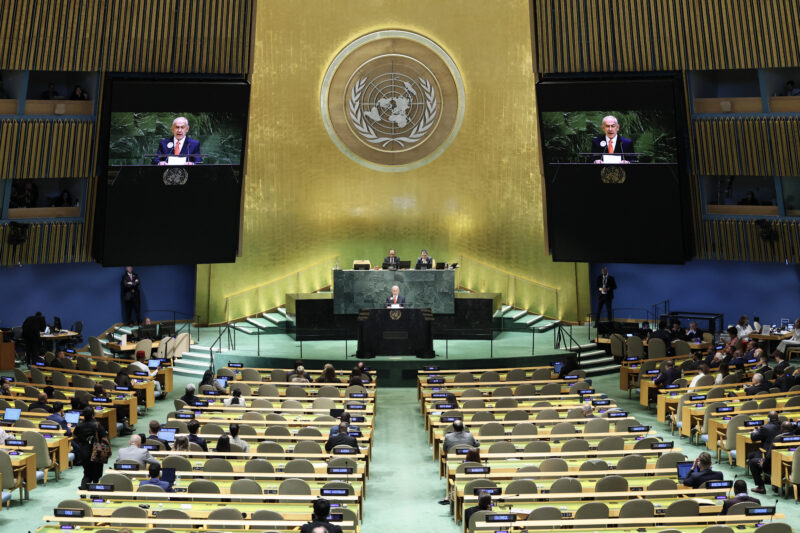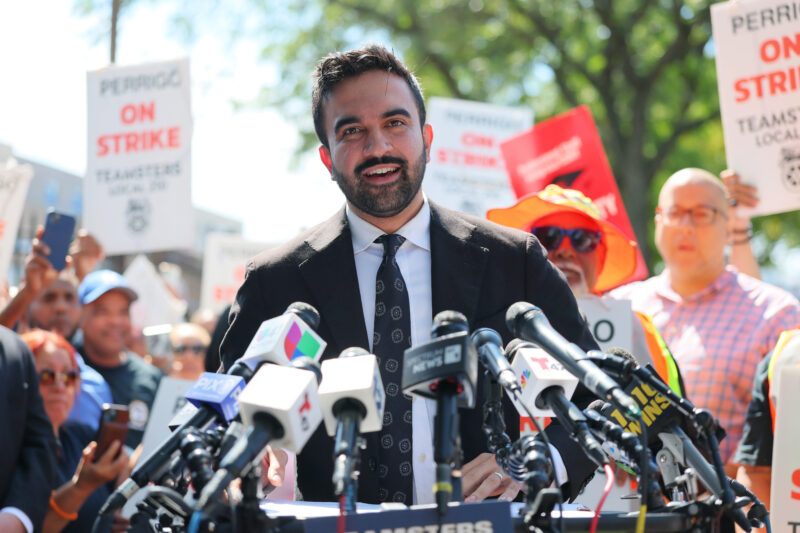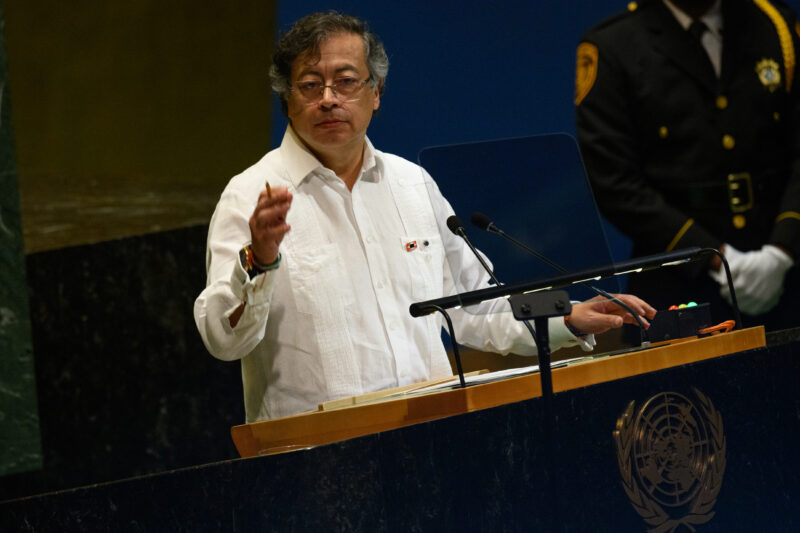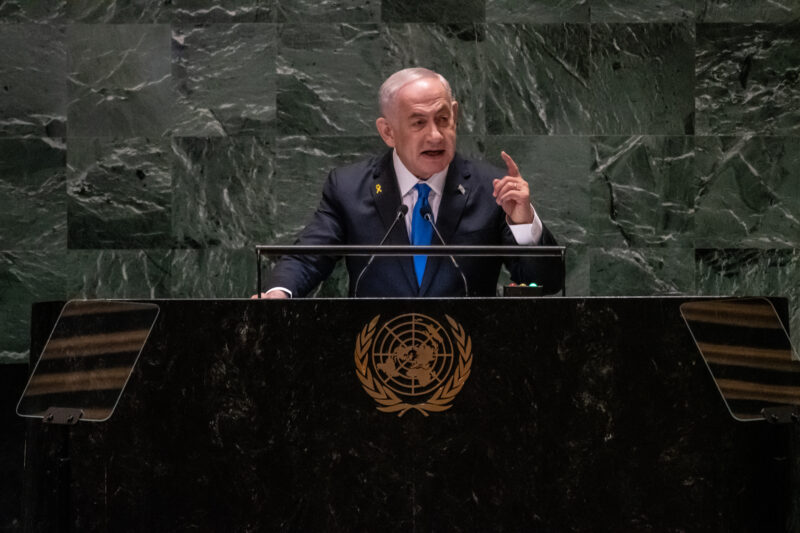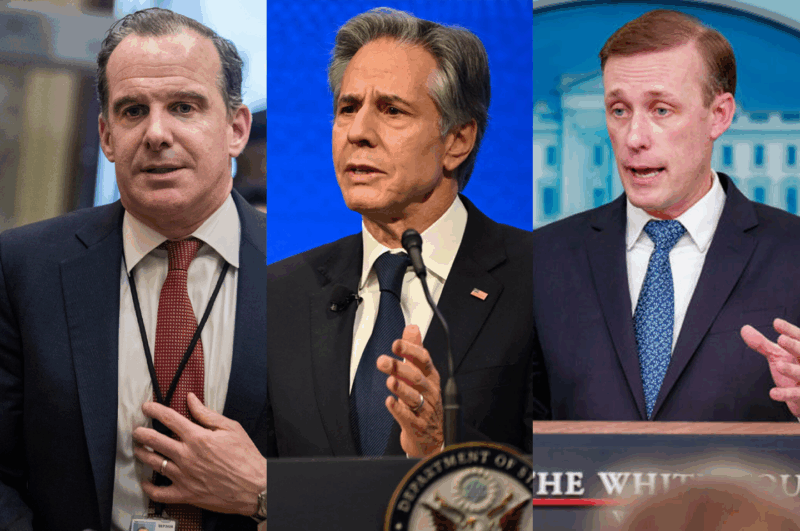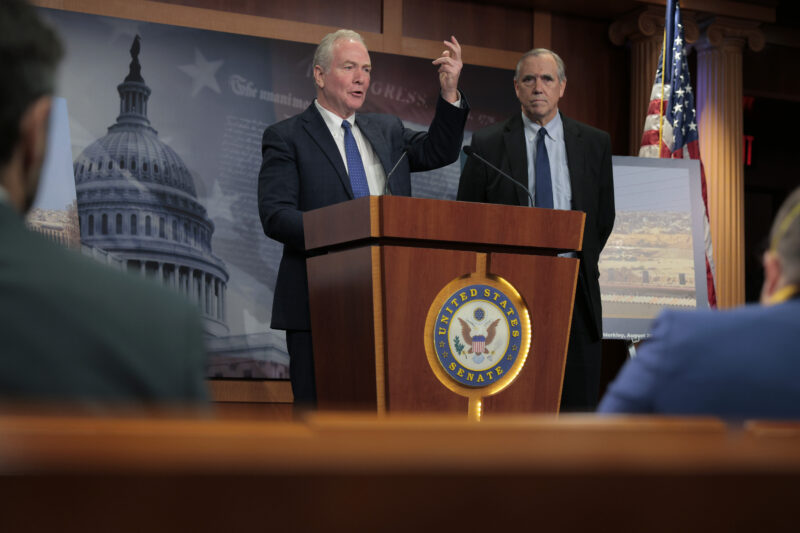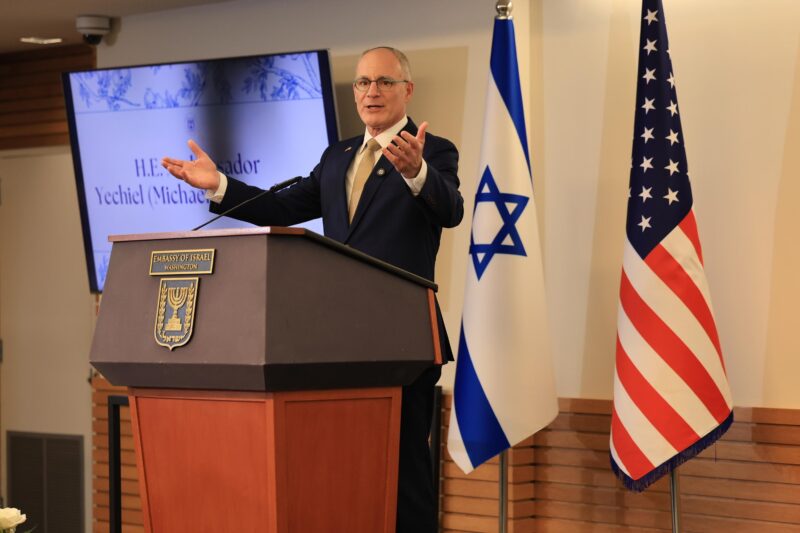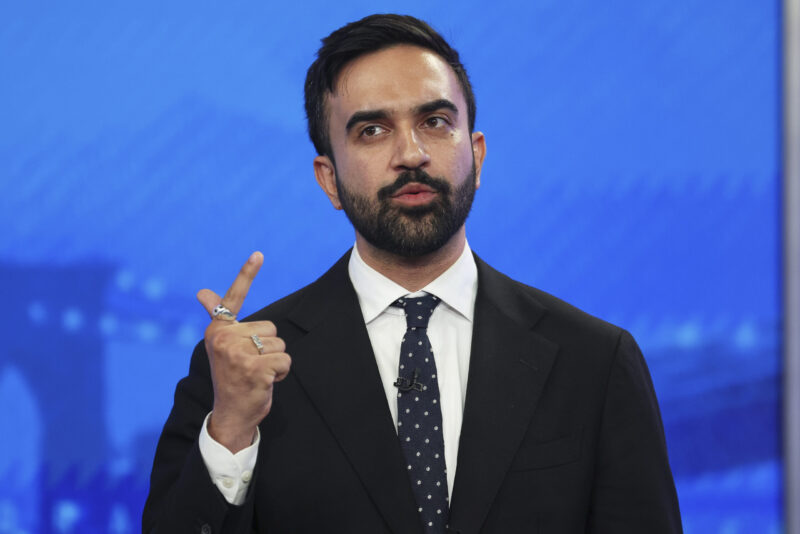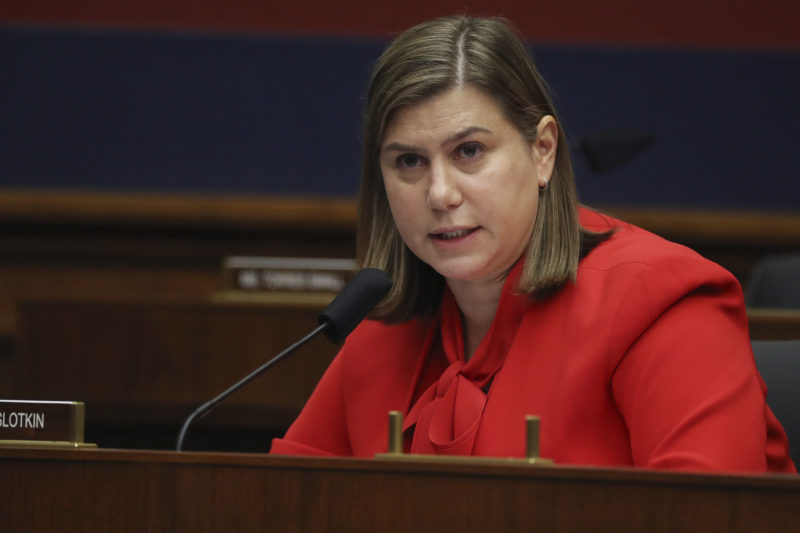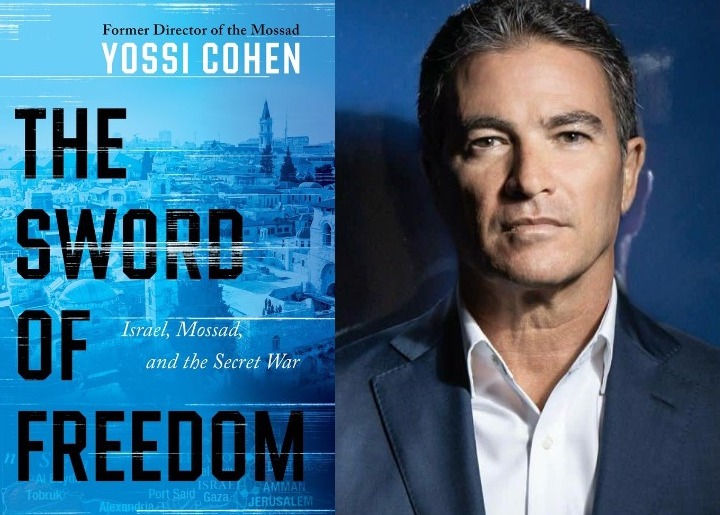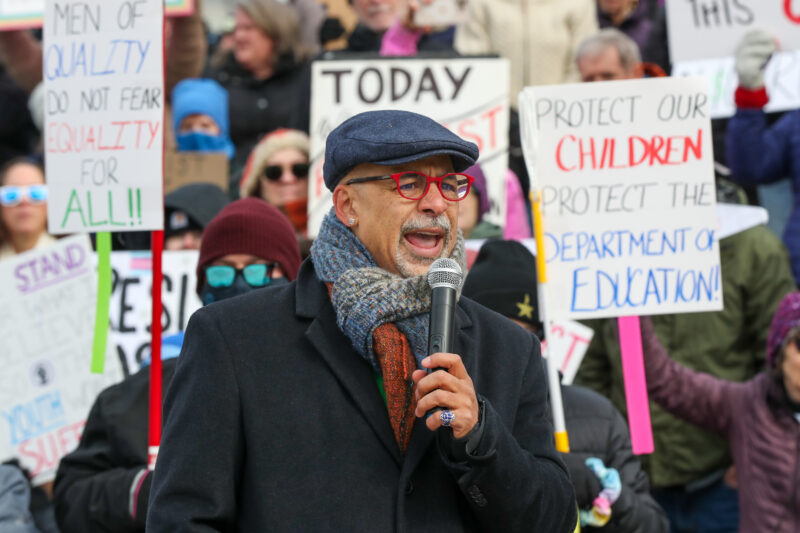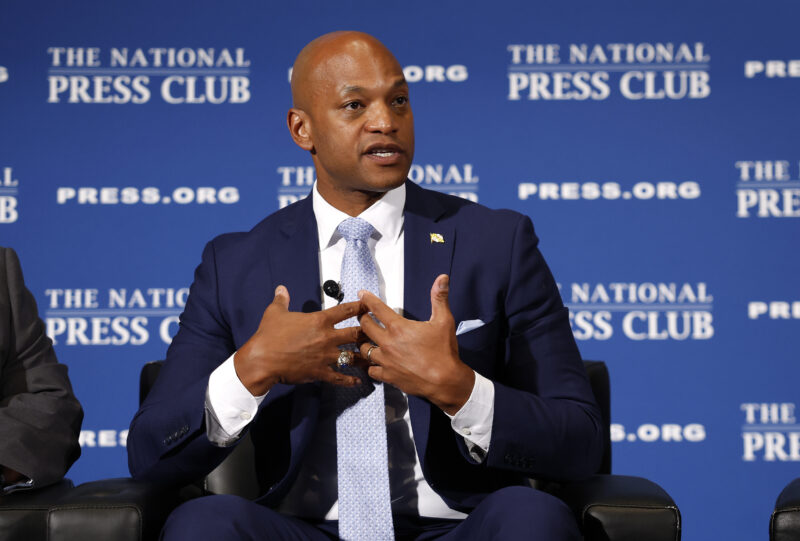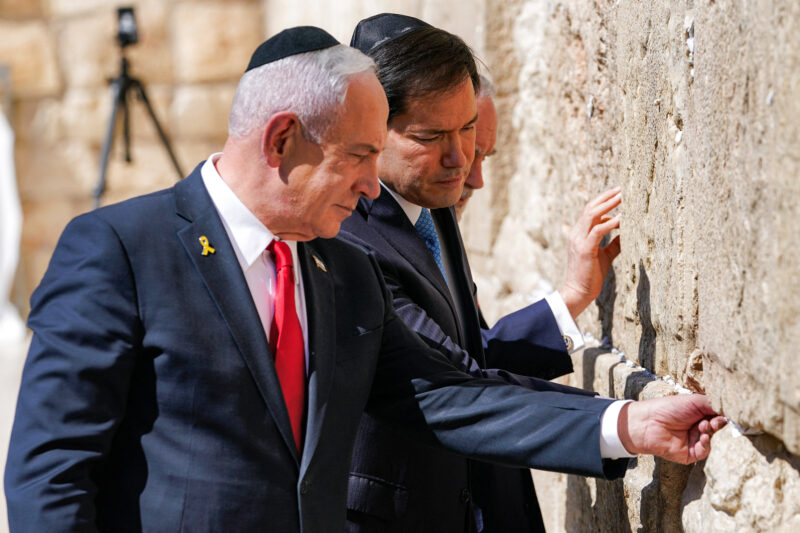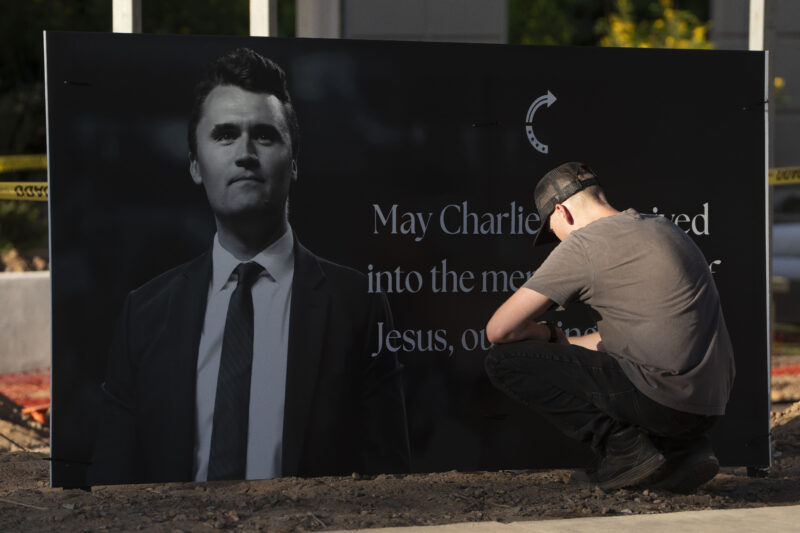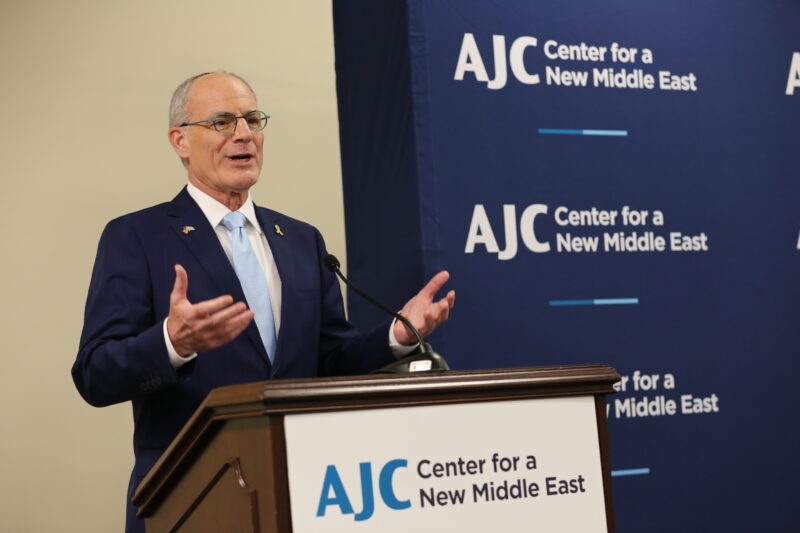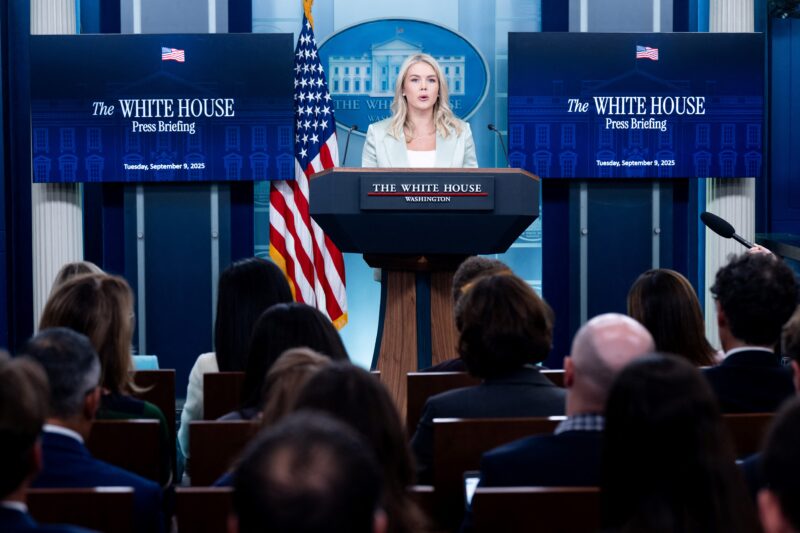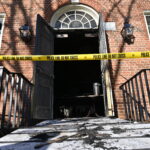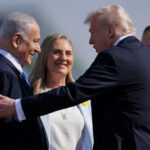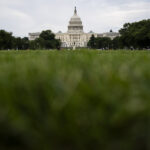The Arkansas senator said there is ‘substantial evidence’ that ‘confirms CAIR has deep ties to terrorist organizations’

Anna Moneymaker/Getty Images
Sen. Tom Cotton (R-AK) speaks with reporters after attending a closed-door, classified briefing for Senators at U.S. Capitol Building on February 14, 2023 in Washington, DC.
Sen. Tom Cotton (R-AR) is urging the Trump administration to investigate the Council on American-Islamic Relations’ (CAIR) alleged “ties to terrorist organizations like Hamas and the Muslim Brotherhood” and consider revoking the group’s 501(c)(3) nonprofit status.
Cotton, who chairs the Senate Intelligence Committee, announced on Tuesday that he had sent a letter to IRS Commissioner Billy Long requesting he look into “recent news and longstanding evidence” demonstrating CAIR’s reported terrorist connections.
“CAIR purports to be a civil rights organization dedicated to protecting the rights of American Muslims. But substantial evidence confirms CAIR has deep ties to terrorist organizations,” Cotton wrote.
The Arkansas senator pointed to CAIR being “listed as a member of the Muslim Brotherhood’s Palestine Committee” in the “largest terrorism-financing case in U.S. history,” as well as the group’s executive director Nihad Awad saying he was “happy to see” the Oct. 7 terror attack in a November 2023 speech.
Awad characterized Hamas’ Oct. 7 terror attacks in Israel as Gazans “break[ing] the siege, the walls of the concentration camp.”
“Government exhibits from the trial revealed that CAIR’s founders participated in a meeting of Hamas supporters in Philadelphia, where they discussed strategies to advance the Islamist agenda in America while concealing their true affiliations,” Cotton said, referring to CAIR’s participation in the 1993 Philadelphia Meeting, a gathering of top Hamas officials trying to find a path forward after the Oslo Accords. “These connections are not mere historical footnotes.”
“The Internal Revenue Code requires that 501(c)(3) organizations operate exclusively for charitable, educational, or religious purposes, and are prohibited from providing material support to terrorism. The IRS has broad authority to examine whether an entity’s operations align with its exempt purpose. Tax-exempt status is a privilege, not a right, and it should not subsidize organizations with links to terrorism,” he continued.
Cotton went on to request that the IRS “immediately investigate CAIR’s compliance with section 501(c)(3), including a review of its financial records, affiliations, and activities.”
Reached for comment on the letter and Cotton’s allegations, a CAIR spokesperson told Jewish Insider, “Tom Cotton’s baseless demand that the IRS target a nonprofit organization based on debunked conspiracy theories is a political stunt straight from the McCarthy era and an un-American tactic carried out to shield the Israeli apartheid government from criticism.”
The bill takes a new tack at a previously attempted move by first designating Muslim Brotherhood branches individually
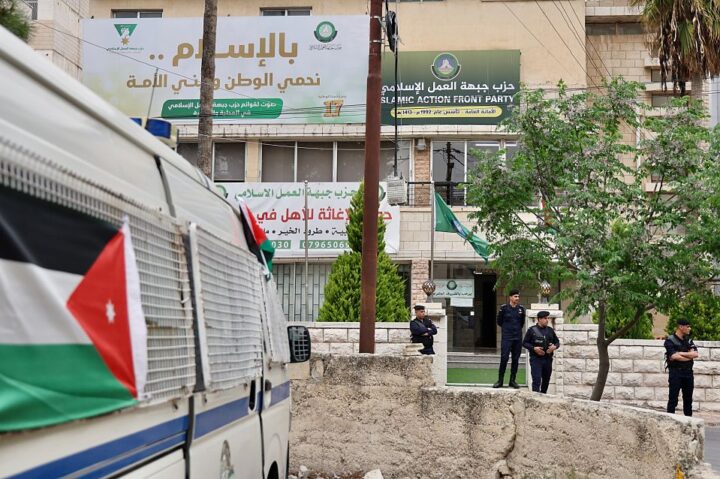
Salah Malkawi/Getty Images
Jordanian police close the entrance of a Muslim Brotherhood headquarter after the announcement of banning the society in the country on April 23, 2025 in Amman, Jordan.
A bipartisan House bill set to be introduced on Tuesday aims to designate the Muslim Brotherhood as a terrorist organization, a step forward for an effort that saw renewed interest following the terrorist attack in Boulder, Colo., targeting Jews advocating for the release of hostages in Gaza by a man who appeared to have expressed support for the group years earlier.
Similar efforts have been pursued at multiple points in the past, but the latest legislation has been updated significantly and focuses on the various branches of the Muslim Brotherhood responsible for terrorism.
The bill, led by Reps. Mario Díaz-Balart (R-FL) and Jared Moskowitz (D-FL), notes that Hamas is a Muslim Brotherhood affiliate that has long been designated as a Foreign Terrorist Organization by the U.S. and that receives material support from the Muslim Brotherhood. It also highlights the destabilization efforts by other Muslim Brotherhood branches in various Arab partner countries of the U.S.
The bill is co-sponsored by Reps. Randy Fine (R-FL), Chuck Fleischmann (R-TN), John Rutherford (R-FL), Andy Barr (R-KY) and Mike Bost (R-IL).
“Today, I once again introduced legislation to designate the Muslim Brotherhood as a foreign terrorist organization,” Díaz-Balart said in a statement. “The global Muslim Brotherhood has numerous regional branches, including terrorist organizations such as Hamas, and spreads violence and instability throughout the Middle East. For this reason, it is crucial to U.S. national security interests that we prohibit U.S. dollars from enabling the Muslim Brotherhood’s dangerous activities, and that we ensure Muslim Brotherhood members are blocked from entering the United States.”
“This important legislation gives the Trump Administration the additional authority it needs to protect Americans, and our closest allies, from this insidious threat,” he continued.
Moskowitz said in a statement, “The Muslim Brotherhood has a documented history of promoting terrorism against the United States, our allies, and our society.”
“Countries such as Bahrain, Egypt, Austria, Jordan, Saudi Arabia, UAE, and France have already taken important steps to investigate and crack down on the Muslim Brotherhood and its affiliates. The U.S. government has to have the authority to crack down on the serious threats posed by this group as well,” Moskowitz continued. “That’s why I’m joining Rep. Diaz-Balart and Sen. Cruz to introduce the Muslim Brotherhood Terrorist Designation Act. This bill builds on my call for an investigation into designating the Muslim Brotherhood a Foreign Terrorist Organization, and it ensures we are taking crucial steps to protect our national security.”
Sen. Ted Cruz (R-TX) introduced companion legislation in the Senate on Monday.
The legislation instructs the secretary of state to identify all branches of the Muslim Brotherhood operating globally and provide a determination of whether each of those branches meets the requirements for designation as a foreign terrorist organization.
The legislation would use those determinations to designate the global Muslim Brotherhood organization as a terrorist group, in light of its support for those branches.
The bill also pursues three methods of designating the group as a foreign terrorist organization: by revising the Anti-Terrorism Act, which was initially targeted at the Palestine Liberation Organization, to include the Muslim Brotherhood, by seeking State Department designation as a Foreign Terrorist Organization and seeking Treasury Department designation as a Specially Designated Global Terrorist group.
The three designations grant the federal government various sanctions authorities and bar Americans from supporting the groups. The bill would also make Muslim Brotherhood members ineligible for entry into the United States and could impose financial sanctions on them.
Previous efforts to designate the group focused on the entire Muslim Brotherhood, rather than starting by targeting specific branches, and only pursued FTO designation.
A fact sheet by the legislation’s sponsors states that the previous “top-down … strategy failed because not all MB branches are currently violent and would therefore meet the criteria for designation.” It described this new approach as “bottom-up,” and similar to the approach the Trump administration took to designate the Islamic Revolutionary Guard Corps as a terrorist group — citing its support for the Quds Force, which was designated as a terrorist group.
Fine has separately introduced legislation to designate the Council on American Islamic Relations as a terrorist group.

Screenshot/X
A man is arrested after throwing a Molotov cocktail at pro-Israel demonstrators in Boulder, CO on June 1, 2025.
Good Wednesday morning.
In today’s Daily Kickoff, we report on the aftermath of the terrorist attack last weekend at a hostage march in Boulder, Colo., and cover a resurgent push for the U.S. to designate the Muslim Brotherhood as a terrorist organization following reports that the Boulder attacker had expressed support for the group. We also talk to students and faculty at Harvard to check in on the school’s recent approach to antisemitism and its clashes with the Trump administration, and report on President Donald Trump‘s recommendation not to increase the funding level of the Nonprofit Security Grant Program. Also in today’s Daily Kickoff: Rep. Randy Fine, Santa Ono and Jake Sullivan.
What We’re Watching
- The White House is holding a briefing for Jewish community leaders this afternoon.
- The House Education and the Workforce Committee is holding a hearing today with Education Secretary Linda McMahon on the department’s policies and priorities.
- Sen. Jim Risch (R-ID) is speaking at the Hudson Institute this afternoon about the future of American foreign policy in the Middle East.
- The Congressional Israel Allies Foundation is hosting a belated Jerusalem Day celebration today on Capitol Hill. MK Gila Gamliel, Israel’s minister of innovation, science and technology, will address the gathering.
- In New York City, WNBC, Politico and Telemundo are hosting a mayoral primary debate at 7 p.m. tonight for nine of the candidates vying for the Democratic nomination later this month.
- Israeli Foreign Minister Gideon Sa’ar is traveling to Germany today, where he’ll meet with his German counterpart, Johann Wadephul, and other senior officials, as well as Jewish communal leaders, in Berlin.
What You Should Know
A QUICK WORD WITH JI’s mELISSA WEISS
The holiday of Shavuot is one of prayer and celebration, marked by all-night learning, indulging in cheesecake and communal events.
But across the U.S., this Shavuot was marked with a fear and unease that has become abnormally normal in recent months, following the Passover arson at the home of Gov. Josh Shapiro and the murders of two Israeli Embassy employees outside the Capital Jewish Museum last month, and deepened further by the horrific attack in Boulder, Colo., on Sunday in which an Egyptian national threw homemade Molotov cocktails at marchers calling for the release of the remaining 58 hostages being held in Gaza. Twelve people, including a Holocaust survivor, were injured.
The reverberations from the attack are already being felt in Washington, where legislators are reviving a bill to designate the Muslim Brotherhood as a terrorist organization. More below.
Two days before the attack, we reported on the Trump administration’s full FY 2026 budget request for Congress — which did not recommend an increase in funding to the Nonprofit Security Grant Program, instead holding it at its current level of $274.5 million. Fewer than half of the requests — which are submitted by organizations at elevated risk of being targeted in a terrorist attack — were fulfilled in 2024.
The attack in Boulder is likely to garner additional calls from the Jewish community for increased funding for the program. In the wake of last month’s deadly attack at the Capital Jewish Museum, a coalition of leading Jewish groups called for the federal government to increase NSGP spending to $1 billion. “The rising level of anti-Jewish incitement, which inevitably leads to violent acts … requires governmental action commensurate with the level of danger,” the organizations said.
In the wake of Sunday’s attack, many legislators condemned the attacks, most denouncing the antisemitic nature of the firebombing. But three Squad members — Reps. Rashida Tlaib (D-MI), Ilhan Omar (D-MN) and Summer Lee (D-PA) — condemned the attacks without mentioning Israel or antisemitism. President Donald Trump, in his response, did not mention Israel or antisemitism either, choosing instead to rail against former President Joe “Biden’s ridiculous Open Border Policy, which has hurt our Country so badly.”
The identities of the victims of the attack and the perpetrators’ declared motivations are political inconveniences to legislators and activists on both sides of the political spectrum — and their decision to erase both perhaps reverberates the loudest.
Other lawmakers focused their comments on the shooter’s immigration status. Mohamed Sabry Soliman had come to the U.S. in 2022 and received a work visa, which expired earlier this year. That the attack was perpetrated by an individual who had been approved for a visa by the Biden administration and remained illegally under the Trump administration is expected to produce more calls for stricter immigration policies. Last night, Homeland Security Secretary Kristi Noem said that Soliman’s wife and five children had been apprehended by immigration officials and faced potential deportation.
But while politicians debate the best approaches — from designating terror groups to calling for immigration crackdowns — Jewish communities remain on edge, feeling unsafe and unheard.
Perhaps nothing underscores Jewish communal concerns at this moment better than an op-ed published in The New York Times on Tuesday by National Council for Jewish Women CEO Sheila Katz.
“When antisemitism emerges within progressive spaces, cloaked in the language of justice, too often it is met with silence and discomfort, creating echo chambers where dangerous ideas are amplified rather than confronted,” Katz wrote. In response to sounding the alarm about antisemitism in left-wing circles, she said, “we have been gaslit, ignored and told that our fear is overblown, our outrage unjustified. Among many groups that have fought to secure and reclaim civil rights, voting rights and reproductive rights, we have seen antisemitism dismissed as not bad enough to matter, our grief met with cynicism, our safety treated as optional.”
Some Americans waking up to their morning news on Tuesday saw “Jews Are Afraid Right Now” as the Times headline accompanying Katz’s piece. But for the first several hours it was posted, the op-ed had a different headline: “American Jews Are Paying for the War in Gaza” — an approach to both the Israel-Hamas war and antisemitism in America that plays into the dual-loyalty tropes that American Jews have fought long before the Oct. 7 attacks.
The Times quietly changed the op-ed’s headline to the milquetoast “Jews Are Afraid Right Now” — which, while correct, missed Katz’s core point: “At rallies and on campuses, in coalition rooms and online spaces, slogans sometimes directly drawn from Hamas’s terrorist manifesto have been chanted and painted on placards, and shouted from stages and in the streets. ‘Globalize the intifada.’ ‘By any means necessary.’ ‘From the river to the sea.’ ‘Zionists out.’ These are not simply words; they can be interpreted as calls for violence.”
The Boulder attacker told investigators he wanted “to kill all Zionist people” — not dissimilar from comments made by the Capital Jewish Museum shooter, who declared, “I did it for Palestine, I did it for Gaza,” after gunning down Yaron Lischinsky and Sarah Milgrim. The arsonist who set the Pennsylvania governor’s mansion on fire said he committed the crime because of what Shapiro, one of the most prominent Jewish politicians in the country, “wants to do to the Palestinian people.”
From academia to activism to journalism, there is a reticence in left-wing circles to acknowledge that inciting language around the Israel-Hamas war can have a dangerous impact.
A year and a half ago, Ivy League administrators were pressed on whether “From the river to the sea” was a genocidal chant. The response, given by the since-ousted presidents of Harvard and the University of Pennsylvania, was that “it depends on the context.”
In this case, the context is the firebombing of elderly Jews calling for the release of hostages in Gaza. Last month, the context was the gunning down of a young couple outside a Jewish organization’s event focused on humanitarian aid in Gaza. In April, the context was the arson of the residence of a Jewish governor on the first night of Passover.
The recent attacks in Harrisburg, Washington and now Boulder are not surprising. They are what happens when ideology-driven activism trumps ethical journalism, when antisemitism becomes a political football and when the boundaries between free speech and calls for violence blur — creating a dangerous and deadly reality for American Jews.
temperature check
Jews at Harvard are still worried about antisemitism — and about Trump’s response to it

As Israeli students departed from Harvard University last month to begin summer break, the usual sense of relief and excitement at having completed another academic year was replaced by fear and uncertainty for many. Amid the Trump administration’s battle with Harvard — which recently escalated to stripping the university of its ability to enroll foreign students entirely — among international students exchanging goodbyes, “See you in the fall” was replaced with “I hope to see you in the fall.” Jewish students and faculty who conduct biomedical research at Harvard also face grim prospects, after Trump revoked billions of dollars in federal funds to the university. At the same time, many Jewish students on campus expressed relief that the antisemitism and anti-Israel activism that was all too common in the aftermath of the Oct. 7, 2023, Hamas attacks had declined significantly in the previous school year, Jewish Insider’s Haley Cohen and Gabby Deutch report.
Trump effect: Changes on campus were implemented at the beginning of the 2024-2025 school year, when Joe Biden was still president, said Harvard Law professor Jesse Fried, noting that Harvard’s progress in addressing antisemitism and students’ anti-Israel bias was not only a result of pressure from President Donald Trump. But once Trump came into office and began threatening Harvard — and then implementing policies that directly targeted the Ivy League university — change happened more quickly, Fried observed. “Harvard is moving very quickly and aggressively to eliminate certain sources of anti-Israel bias on campus,” Fried said. “If the Trump administration were not breathing down their neck, I believe progress would have been much slower.”
Elsewhere: A federal judge dismissed a discrimination lawsuit filed against the University of Pennsylvania by two Jewish students, saying that the plaintiffs failed to demonstrate that the university had taken action that “could be interpreted as antisemitic with the intention of causing harm to the plaintiffs.”





